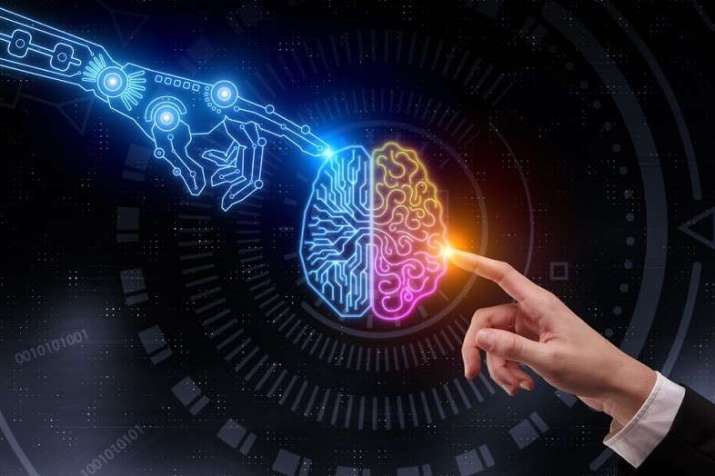FEATURES|COLUMNS|Mindful Capital
Disruption from Innovative Technologies
 From technology-signals.com
From technology-signals.comTechnologies undoubtedly change the way we live, however it would be naive to believe that technologies bring forth only benefits without costs. A recurring theme in history is that the advent of new tools and technologies fundamentally shifts the ways we perceive ourselves and the world, as well as our roles within it. From the development of the steam engine, aviation, computer processing, and, more recently, artificial intelligence, tools and technologies have significantly improved human welfare and productivity but not necessarily the well-being of humans and the world’s ecosystems.
Why is this? First, the development of tools and technologies are mostly meant for task-specific instrumental use, without much consideration of the deeper, multifaceted implications. In his recent seminal work Buddhism and Intelligence Technology (2021), Hershock distinguishes tools from technologies, saying that “tools are built and localizable” while technologies are “emergent systems of material and conceptual practices that embody and deploy both strategic and normative values: intentional environments that at once shape how we do things and why.” Technologies have some fundamental humanistic, social, and political dimensions. Hershock clarifies that “we do not build or use technologies, we participate in them.”
Most of the recent developments in AI could be evaluated through the same lens. Nowadays, scientists and investors are focused on developing faster and more intelligent systems. However, the significance of AI as a technology is being ignored. While most scientists are focusing on the technological “singularity”—when the development of AI reaches a point of no return; when it manages to self-evolve and outpace human intelligence “in a runaway fashion,” pundits are concerned that it will eventually lead to a “Skynet” moment, as depicted in the Terminator science fiction franchise.
Nonetheless, Hershock is more concerned about the imminent threat of the ethical singularity, in which the “opportunity space for further human course correction collapses,” a point at which AI will fundamentally and irreversibly change our values and the way we interact and behave. As experienced during the COVID-19 pandemic, technologies enable us to stay connected while we are separated and isolated physically. Unfortunately, technologies also confuse our understanding of knowledge, relationships, and means of happiness as we seem to lack the ability to identify truth, real identity, and hence genuine connection and relationships. The spiritual and religious exploration of what makes us happy and alleviates our suffering has become more and more challenging: if moral life is the foundation of happiness, as proclaimed by the Buddhist teachings, how can we appreciate moral causes and consequences when we may no longer be able to identify moral agency, as well as the necessary facts and data essential to make proper moral choices?
During a recent conference on AI and ethics, I argued that AI poses a series of threats to our existing theories of knowledge, identity, and salvation. In terms of the theory of knowledge, we humans “know” ourselves and the external world through our perceived feelings and conceived thoughts. As we provide more and more data for machines to decipher our preferences and thought patterns, we become more and more vulnerable to the manipulations of those who can access and analyze that data. It may come to a point at which the machines know more about our feelings and thoughts than our close friends and family, or even more than our self-awareness and understanding. Fake and biased information may also systematically change the way we behave and think. In terms of the theory of identity, the development of computer-generated deepfake imagery and virtual reality lead us to a new world of experience that will challenge our sensory and mental faculties. We can no longer be sure about the true identities of those with whom we interact digitally, and people may also create multiple personas and identities online. It may become impossible to truly understand ourselves and others holistically and cultivate meaningful relationships. It may also threaten the core identity of humans, as expressed through consciousness and conscience. Finally, in terms of the theory of salvation, AI may also give us different definitions of life and happiness, as well as the choices and actions that we need to take to be happy in this life or beyond.
What is the meaning of human flourishing in the age of AI? When technologies alleviate the heavy burden of the physical and mental labor of acquiring and retaining knowledge, as well as making difficult mundane and moral decisions, what are the roles and responsibilities of humans?
When it comes to the topics of mind, human values, and intelligence, the Buddhist teachings have very significant contributions to the understanding of values, moral decision-making, perception of self and this world, and the contrast between “real” and “artificial” intelligence. The Buddha has very unique observations on this phenomenal world and how humans interact with it. It could give us important insights into better understanding the causes and consequences of technology adoption and a unique understanding of human minds—its self-entrapment as well as its potential liberation. Hence, the Buddhist teachings could offer a deep understanding of human well-being, compassion, and freedom. Through the Buddhist worldview, we could develop better confidence in the unique potential and positioning of human intelligence by illustrating the possibility of taking back control of our attention, consciousness, and, most importantly, the ability to choose. When our devices, cities, and states become smarter, human intelligence must continue to upgrade instead of downgrade.
Reference
Hershock, Peter D. 2021. Buddhism and Intelligent Technology: Toward a More Humane Future. London: Bloomsbury Academic.
See more
Related features from Buddhistdoor Global
Taxing the Robots and Other Externalities
The Rise of Artificial Intelligence and What it Means for Our Jobs
Does Artificial Intelligence have Buddha-nature?
Dharma and Artificial Intelligence: Further Considerations
Buddhistdoor View: The Dharmic Conundrum of AI














